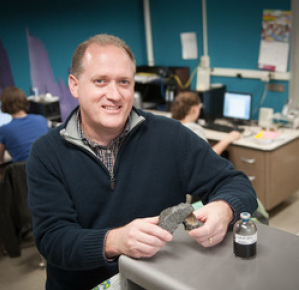
James Holden, a microbiology professor at the University of Massachusetts and devout Christian, led a discussion Tuesday at the Commonwealth Honors College, to explore how science and religion intersect.
Holden's talk was driven by questions from the audience, whose members sought to discover how science and religion can coexist and where, if anywhere, their limits lie, reports The Massachusetts Daily Collegian.
In Holden's view, many current issues, from sustainability to technology and natural disasters, have scientific elements blended with societal or moral components as well. It is in this intersection that the overlap between science and faith becomes apparent, he said.
Science and religion both exist as truth, proclaimed Holden.
"This doesn't mean that science and religion agree on everything, but I'm at peace with these two aspects of my life being together as one," he shared.
Holden attended the University of Washington where he received a doctoral degree in oceanography before earning his post-doctor at the University of Georgia. He then studied oceans through numerous analytical deep sea ventures, in partnership for several NASA projects as well as independent research in microbial physiology.
The scientist said he began searching for greater meaning and purpose, which he eventually found in the "roots of Christianity."
In his Tuesday talk, Holden drew on his experience as a scientist and devoted Christian to address the question of whether science and faith can exist simultaneously or are by nature contradictory, reports The Massachusetts Daily Collegian. He specifically wove in his belief that the only way for society to progress is with respect and open-mindedness, regarding those beliefs that differ from one's own.
Many of the questions addressed by Holden focused on the reconciliation of religious ideology with real-world tragedies, and the relationship between faith and scientific facts. Holden cited the former as "the most challenging question to (his) faith."
Holden also addressed a question regarding the apparent conflict between the concrete foundation of science, which relies heavily on fact and the search for knowledge, and the more ambiguous notion of faith. Holden said his belief is the two areas exist in separate domains, in that the substance of religion exists outside of science's area of space, energy, time and matter, which by contrast is where science takes place.
One of Holden's most highlighted points was the necessity of appreciating the diversity of beliefs. Saying that he obviously doesn't have all of the life's answers, he said he knows the answers are not always black and white. "Some things are, and will likely remain, unclear, but this connection between science and religion has allowed me to find greater meaning," said Holden.






